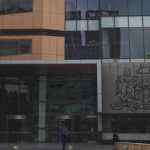NSW Chief Magistrate Blasts Defence Lawyers

Police in NSW enjoy the power to ‘shoot first and ask questions later’ – which means they can charge a person with a criminal offence on a mere ‘reasonable suspicion’, and try to gather evidence later.
By contrast, police in the United States are normally required to ask questions before they prosecute – in other words, to gather evidence which amounts to ‘probable cause’ before they can arrest and charge a person.
Now imagine this: police accuse you of a criminal offence based on their supposed ‘reasonable suspicion’. You are formally charged and given a court date. The allegations are so serious that the case is taken over from police by the DPP (ie the government’s prosecuting lawyers) and lands in the Downing Centre’s listing court for DPP cases, courtroom 5.2.
On the first court date, the magistrate orders the prosecution to provide your defence lawyers with the ‘brief of evidence’ ie the material which they rely upon to support their allegations. As is normally the case, the prosecution is ordered to service that material within 4 weeks, and a court date is set 6 weeks away.
The second court date is called ‘reply to brief’, because your lawyers are meant to receive the evidence (within 4 weeks time), go through that material, obtain your ‘instructions’, make necessary inquiries / investigations etc and attend court to advise of your ‘reply’ (eg whether you are pleading guilty or not guilty) 2 weeks later.
Time goes by, and the 4 weeks given to the prosecution passes. Your lawyers contact the prosecution, but they have done little or nothing the gather the so-called ‘evidence’ against you. It comes to the day before court. Your lawyers still don’t have the materials.
The day of court arrives and your lawyer advises the court that he or she cannot ‘reply to the brief’ because there is no brief to reply to. Indeed, the prosecution has breached court orders by failing to serve the brief. The magistrate says little or nothing to the prosecution and grants an adjournment – this time, the magistrate orders the prosecution to service the ‘brief’ within 5 weeks and sets a further ‘reply to brief’ date 1 week later.
Having received nothing, your lawyers prepare, file and serve a ‘subpoena’ to police detailing all of the material required. The subpoena requires the materials that normally form the ‘brief of evidence’ and additional materials, in an attempt to speed up the case without incurring the local court’s rebuke by filing a subpoena too early, and to save legal costs. The police are required by court order to produce those materials on the next ‘reply to brief’ date.
It’s like a broken record – the 5 weeks arrives and the other side has only served a small part of its ‘brief of evidence’. The court date arrives and they fail to comply with the subpoena, saying they need more time.
This course of proceedings is not rare. Indeed, these prosecution failures are a regular occurrence in the local courts.
In such cases, defence lawyers are unable to properly consider the brief, take instructions and make their own investigations and inquiries because they do not have a brief to consider!
Now, who would you expect to face consequences in this scenario? And bear in mind, the defendant has already been put through at least 12 weeks of angst awaiting the brief, not to mention legal costs.
Chief magistrate makes his views clear
Chief Magistrate, Judge Graeme Henson, has reportedly declared he is “underwhelmed” by lawyers who seek adjournments.
But more than this, he is reported to have commented in open court “If Pinocchio [was a lawyer] he would be the one with the shortest nose in the courtroom” and “If we were marking lawyers today we would be marking them near the bottom, not the top”. On a single day, he is reported to have rebuked several lawyers who informed the court that they required adjournments.
Judge Henson is reported to have also criticised prosecutors for delays in serving briefs, and made comments against the government for not accommodating for the court’s ever-increasing workload.
Costs applications for local court delays
All magistrates in NSW have at their disposal the power order costs for delays.
Section 118 of the Criminal Procedure Act 1986 (NSW) gives magistrates the power to order costs for delays in ‘committal proceedings’ (ie local court cases that are likely to be referred to a higher court) if “satisfied that the other party has incurred additional costs because of the unreasonable conduct or delay of the party against whom the order is made.”
Section 216 of the Act contains a similar provision for ‘summary cases’, which are those which normally come with a maximum penalty of two years’ imprisonment or less and remain in the local court.
The powers are there, but many believe they are used too seldom. Indeed, greater use of these powers might cause police officers to be more cautious about bringing charges with little evidence, and even result in prosecutors pushing for the timely preparation and service of briefs. The sections could also be used against defence lawyers who seek adjournments without proper basis.
Tough bail laws and the absence of a statutory compensation scheme
Now imagine this: you are one of the hundreds of defendants every year who are refused bail under our state’s tough bail regime, and held behind bars for months awaiting the service of prosecution briefs, only to ultimately be cleared of the allegations due to the lack of evidence.
Sadly in NSW, you will have little recourse for the time spent behind bars, unlike in the US where many states have statutory schemes to compensate those who are wrongly imprisoned. Indeed, you may need to cough up a significant amount of money if you wish to pursue civil action for wrongful imprisonment – money you can ill-afford after having spent months in prison.
You may even find it difficult to recover your legal costs due to the strict rules applied to cost applications.






